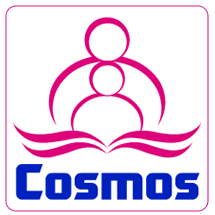Activity Based Teaching Techniques: A Survey on the Improvement of Students Performances at Primary Level
DOI:
https://doi.org/10.5281/ijete.v2i1.39Keywords:
Activity Based Teaching Techniques, Students’ Performances, Primary levelAbstract
This study was conducted to find out the role of activity based Teaching techniques to improve students’ performances at primary level. The nature of the current study was quantitative and survey method was employed to collect data. The populations of the study consisted of three hundred and twelve (312) female teachers and 175 teachers selected as a sample by using random sampling technique. In this study the researcher developed a questionnaire based on five-point Likert scale. Statistical Package for Social Science (SPSS) was utilized to analyze the data. The researcher used frequency, percentage, mean, and standard deviation. It is concluded that primary school teachers’ use puzzles for better understanding of students and they improve curiosity of students and also use multimedia tools for presentation which helps to enhance students understanding. It is recommended that teachers may use multimedia tools for presentations, which help in enhancing student’s understanding.
Downloads
References
Anwer, F. (2019). Activity-Based Teaching, Student Motivation and Academic Achievement. Journal of Education and Educational Development, 6(1), 154-170.
Belk, R., Humayun, M., & Brouard, M. (2022). Money, possessions, and ownership in the Metaverse: NFTs, cryptocurrencies, Web3 and Wild Markets. Journal of Business Research, 153, 198-205.
Cole-Onaifo, K. (2022). Teachers’ transition from teacher-centered to learner-centered classrooms using the next generation science standards as a tool. Columbia University.
Covitt, B. A., de los Santos, E. X., Lin, Q., Morrison Thomas, C., & Anderson, C. W. (2023). Instructional practices in secondary science: How teachers achieve local and standards‐based success. Journal of Research in Science Teaching.
Eldho, Z. C., & Muthukumar, K. (2022). Ergonomic Risk Assessment of Students in Digital Learning. In Advances in Behavioral Based Safety: Proceedings of HSFEA 2020 (pp. 161-177). Singapore: Springer Nature Singapore.
Fan, D. P., Wang, W., Cheng, M. M., & Shen, J. (2019). Shifting more attention to video salient object detection. In Proceedings of the IEEE/CVF conference on computer vision and pattern recognition (pp. 8554-8564).
Hannafin, M. J., & Land, S. M. (2020). The Foundations and Assumptions of Technology-Enhanced Student-Centered Learning Environments. In Handbook of Research on Learning and Instruction (pp. 84-105). Routledge.
Joshi,M. R., & Mishra, P. (2022). A Study of The Effectiveness of Activity-Based Teaching-Learning of Mathematics At 8th Standard Students.
Kala, S., & Dhyani, K. (2020). The Impact of Activity-Based Learning in Science Education: A Review Study. Indian Journal of Science and Technology, 13(16), 1639-1645.
Mawaddah, N., & Heriyawati, D. F. (2022). Lesson Ideas of Narrative Reading Comprehension Using Storyboard Makers. VELES (Voices of English Language Education Society), 6(1), 102-117.
McLeod, A. R., Cortina, K. S., Williams, J. L., & Prestridge, S. (2021). Hands-On, Minds-On: The Benefits of Activity-Based Learning in Higher Education. International Journal of Teaching and Learning in Higher Education, 33(2), 348-360.
Miranda, J., Navarrete, C., Noguez, J., Molina-Espinosa, J.-M., Ramírez-Montoya, M.-S., Navarro-Tuch, S. A., . . . Molina, A. (2021). The core components of education 4.0 in higher education: Three case studies in engineering education. Computers & Electrical Engineering, 93, 107278.
Okoro, C. U. (2019). Activity-based learning strategies and academic achievement of social studies students in Obio/Akpor local government area. International Journal of Education and Evaluation, 5(1), 19-24.
Rajagopalan, I. (2019). Concept of Teaching. Shanlax International Journal of Education, 7(2), 5-8.
Reinholz, D., Johnson, E., Andrews-Larson, C., Stone-Johnstone, A., Smith, J., Mullins, B., . . . Shah, N. (2022). When active learning is inequitable: women’s participation predicts gender inequities in mathematical performance. Journal for Research in Mathematics Education, 53(3), 204-226.
Rodriguez, S. L., Huppert, J., & Hutchison, A. (2022). The Impact of Activity-Based Learning on Students’ Academic Performance in an Introductory Financial Accounting Course. Journal of Accounting Education, 68, 100789.
Shah Ph, D., & Kumar, R. (2019). Effective constructivist teaching learning in the classroom. Shah, RK (2019). Effective Constructivist Teaching Learning in the Classroom. Shanlax International Journal of Education, 7(4), 1-13.
Shklovsky, V. (2023). On the theory of prose. Deep Vellum Publishing.hematics in digital times: Preschool teachers’ views. Education Sciences, 12(7), 459.
Sivakumar, R. (2022). Effectiveness Of Memory Game On Academic Performance Of Primary School Students. Experimental verification of the effectivencss of the distance learning system influence on the level of development of professional and pedagogial Compe-Tence of primary school teachers Oleksii MUKOVIZ, Pavlo Tychyna Uman State Pedagogical University, UKRAINE, 15.
Surur, M., Ridhwan, M., Azis, A. A., & Noervadila, I. (2023). Improving Creative Thinking Skills of Early Childhood by Utilizing Robotic Activities in Learning Process. Journal of Childhood Development, 3(1), 79-83.
Sutarto, S., Sari, D. P., & Fathurrochman, I. (2020). Teacher strategies in online learning to increase students’ interest in learning during COVID-19 pandemic. Jurnal Konseling dan Pendidikan (JKP), 8(3), 129-137.
Usman, G. B. T., Ali, M. N., & Ahmad, M. Z. (2023). Effectiveness of STEM problem-based learning on the achievement of biology among secondary school students in Nigeria. Journal of Turkish Science Education, 20(3), 453-467.
Williams, R., Park, H. W., Oh, L., & Breazeal, C. (2019, July). Popbots: Designing an artificial intelligence curriculum for early childhood education. In Proceedings of the AAAI Conference on Artificial Intelligence (Vol. 33, No. 01, pp. 9729-9736).
Yaseen, S., & Farooq, A. (2023). Role of Teacher in Promoting Activity Based Learning among Students at Secondary Level: Role of Teacher in Promoting Activity Based Learning. International Journal of Emerging Trends in Education, 1(1).
Zhang, Z. V., & Hyland, K. (2022). Fostering student engagement with feedback: An integrated approach. Assessing Writing, 51, 100586.
Published
How to Cite
Issue
Section
License
This is an Open Access article distributed under the term of the Creative Commons Attribution 4.0 International licenses permitting all use, distribution and reproduction in any medium provided the work is properly cited.

























